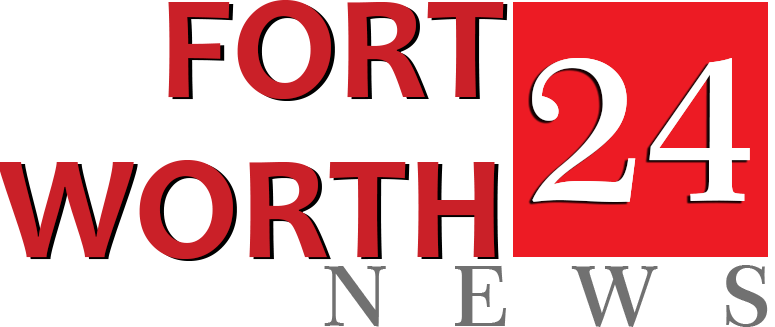Renewing homeowners insurance can seem like a daunting task, especially for first-time buyers. Ensuring that your policy remains relevant and provides adequate protection is crucial to maintaining peace of mind. Here are some essential homeowners insurance renewal tips to help you navigate this process smoothly and secure the best coverage available.
1. Review Your Current Coverage
Before renewing your policy, take a close look at your existing coverage. Ensure that it aligns with your current needs and any changes that might have occurred since your last renewal. Consider aspects like Home insurance premium calculator, whether you need high-value home insurance, or if you require specialized coverage such as homeowners insurance with flood coverage.
2. Assess Your Coverage Needs
As your life and property evolve, so do your insurance needs. First-time buyers should evaluate whether their current policy covers new risks or changes. For instance, if you've made significant upgrades or renovations, you might need to adjust your coverage. If you’ve recently purchased a new construction home, ensure that your policy reflects this with adequate protection under home insurance for new construction.
3. Compare Insurance Rates and Coverage
Utilize online tools to compare homeowners insurance quotes online and find the best homeowners insurance rates. Websites that offer home insurance comparison can provide insights into various policies and help you find affordable homeowners insurance options. This step is crucial for ensuring you receive the most competitive rates and comprehensive coverage.
4. Explore Discount Opportunities
Many insurers offer discounts that can lower your premium. Look for discount homeowners insurance options and inquire about home insurance discounts available. Consider bundling your home insurance with other policies to benefit from multi-policy homeowners insurance discounts. Also, if you’ve made energy-efficient upgrades or installed security systems, you might qualify for additional savings.
5. Understand Policy Limits and Deductibles
Ensure that you fully understand your policy limits and deductibles. Review your homeowners insurance policy details to confirm that they are adequate for your needs. If you have valuable possessions, consider increasing your coverage limits or opting for a policy with enhanced protection features, such as homeowners insurance liability coverage.
6. Consider Special Coverage Needs
Depending on your location and property type, you might need specialized coverage. For instance, if you own a vacation property or a rental property, make sure your policy includes appropriate coverage. If you live in a high-risk area prone to natural disasters, such as floods or earthquakes, ensure that your policy includes homeowners insurance with flood coverage or other relevant protections.
7. Evaluate Home Insurance for Different Property Types
Different property types may require different insurance approaches. If you live in a condo, homeowners insurance for condos will address specific risks associated with condo living. Conversely, if you own a mobile home or a historic home, you should seek policies tailored to those particular needs. Additionally, consider insurance options for home-based businesses if you operate a business from your home.
8. Review Your Insurance Provider's Reputation
Choose an insurance provider with a strong reputation. Look into best rated homeowners insurance companies and check customer reviews to gauge their reliability. This step will help you avoid potential issues with the Homeowners insurance policy details and ensure that your insurer is known for excellent service and support.
9. Check for Policy Changes and Updates
Insurance policies can change, and new endorsements or exclusions might be added. Carefully review any policy updates or changes to understand how they might affect your coverage. Pay attention to details such as the homeowners insurance underwriting process and any new terms or conditions.
10. Seek Customized Coverage
If you have specific needs, such as high-value assets or unique risks, look for customized homeowners insurance plans. This ensures that you get tailored coverage that suits your personal circumstances. If you’re a first-time buyer, consider policies that offer comprehensive protection without requiring extensive adjustments.
11. Verify Mortgage and Insurance Requirements
Ensure that your policy meets any requirements set by your mortgage lender. Some lenders have specific insurance needs, such as minimum coverage levels or additional endorsements. Confirm that your policy complies with these requirements to avoid any complications with your mortgage.
12. Utilize Online Tools and Resources
Make use of online tools like the home insurance premium calculator to estimate potential costs and compare different options. These tools can help you understand how changes in coverage or deductibles might impact your premium.
13. Understand Your Rights and Responsibilities
Familiarize yourself with your rights and responsibilities as a policyholder. This includes understanding the homeowners insurance claim process and knowing what steps to take in case of a claim. Be proactive in understanding how to file a claim and what documentation you will need.
Renewing your homeowners insurance is a crucial task that requires careful consideration and planning. By following these tips and utilizing the available resources, first-time buyers can ensure they receive the best homeowners insurance rates and maintain affordable homeowners insurance coverage that meets their evolving needs. Regularly reviewing and adjusting your policy will help safeguard your property and peace of mind, whether you live in New York, Chicago, Los Angeles, Miami, or Las Vegas.
Essential Tips for Renewing Homeowners Insurance for High-Value Properties
Maintaining adequate coverage for a high-value home is crucial for safeguarding your investment. As the renewal date approaches, it's essential to reassess your homeowners insurance to ensure it aligns with your property's current value and needs. Here are some effective tips to help you navigate the renewal process, manage costs, and keep your high-value property adequately covered.
1. Evaluate Your Coverage Needs
High-value properties require specialized protection, often beyond standard homeowners insurance. Assess the homeowners insurance coverage types that best suit your property. This might include coverage for natural disasters, flood coverage, or protection for high-risk areas. Ensure that your policy provides comprehensive protection for unique risks associated with luxury homes.
2. Reassess Property Value and Coverage Limits
As your property value changes, so should your insurance coverage limits. Use a home insurance premium calculator to estimate the appropriate coverage amount for your home. Review your policy’s coverage limits and adjust them if necessary to reflect any renovations or changes in property value. This ensures that you won't be underinsured in case of a claim.
3. Shop for the Best Rates
To get the best deal, compare various insurance providers. Utilize a home insurance comparison website to gather quotes from different insurers. By exploring homeowners insurance quotes online, you can find the best homeowners insurance rates for high-value homes. Look for discount homeowners insurance options that may be available for high-net-worth individuals.
4. Consider Customized Insurance Plans
High-value properties often require customized homeowners insurance plans. These plans can offer tailored coverage that addresses specific risks associated with your property. Work with an insurance agent to create a plan that meets your unique needs and offers adequate protection.
5. Check for Policy Discounts
Many insurers offer discounts that can help manage costs. Explore home insurance discounts available, such as multi-policy homeowners insurance discounts if you bundle your home insurance with other policies. Additionally, inquire about discounts for installing security systems, making energy-efficient upgrades, or having a claims-free history.
6. Review and Update Homeowners Insurance Policy Details
Carefully review your policy details to ensure they are up-to-date. Confirm that all homeowners insurance policy details accurately reflect your current situation. This includes verifying coverage for vacant homes if you plan to leave your property unoccupied for extended periods.
7. Understand Your Policy’s Claim Process
Familiarize yourself with the homeowners insurance claim process to avoid delays or issues if you need to file a claim. Knowing the steps involved can help you navigate the process more smoothly and ensure you receive the compensation you’re entitled to.
8. Assess Additional Coverage Options
Depending on your property’s location and features, you may need additional coverage. For instance, if your home is in a flood-prone area, ensure your policy includes homeowners insurance with flood coverage. If you have high-value personal property, check if your policy covers personal property and liability coverage adequately.
9. Evaluate Insurance Providers
Select insurance providers known for their reliability and customer service. Look for best rated homeowners insurance companies that offer specialized coverage for high-value homes. Research reviews and ratings to gauge the quality of their service.
10. Consider Coverage for Unique Scenarios
High-value properties might have specific needs. For example, if you rent out part of your home or use it for short-term rentals, ensure your policy covers homeowners insurance for Airbnb rentals or other rental scenarios. Similarly, if you operate a home-based business, confirm that your insurance includes coverage for home insurance for home-based businesses.
11. Review Mortgage Requirements
If your home is financed, review your mortgage lender’s requirements for homeowners insurance. Ensure that your policy meets their homeowners insurance and mortgage requirements to avoid any issues with your loan.
12. Explore Coverage for High-Net-Worth Individuals
For luxury homes, look into insurance policies specifically designed for high-net-worth individuals. These policies often provide broader coverage and higher limits to protect valuable assets.
13. Stay Informed About Insurance Trends
Insurance trends and rates can vary by location. Stay updated on home insurance rates by state and adjust your coverage accordingly. For example, homeowners in New York, Chicago, Los Angeles, Miami, and Las Vegas may face different insurance challenges and rates.
Renewing homeowners insurance for a high-value property involves careful consideration and planning. By reassessing your coverage needs, exploring various insurance options, and taking advantage of available discounts, you can maintain adequate protection for your luxury home while managing costs effectively. Regularly reviewing your policy and staying informed about industry trends will help you make the best decisions for your high-value property’s insurance needs.
Best Homeowners Insurance Renewal Tips for Budget-Conscious Homeowners
Renewing your homeowners insurance can be a daunting task, especially if you're trying to balance saving money with maintaining essential coverage. For budget-conscious homeowners in cities like New York, Chicago, Los Angeles, Miami, and Las Vegas, it's crucial to navigate this process wisely to ensure you’re getting the best homeowners insurance rates without compromising on the quality of your policy. Here are some practical tips to help you save money and make informed decisions when renewing your homeowners insurance.
1. Review Your Current Policy
Before renewing, thoroughly review your existing policy. Understand the Home insurance discounts available and evaluate whether they still meet your needs. Are there any coverages that are no longer necessary, or are there gaps that need to be filled? For instance, if you have high-value home insurance, ensure the coverage reflects any recent updates to your property. If you have a new construction, verify that your policy adequately covers the latest additions.
2. Compare Quotes Online
One of the most effective ways to find discount homeowners insurance is to compare quotes from multiple providers. Use an online homeowners insurance quotes tool or a home insurance comparison website to gather quotes quickly. This approach helps you see how different insurers stack up in terms of homeowners insurance policy details and home insurance premium calculators, giving you a clearer picture of available options.
3. Explore Affordable Options
Search for affordable homeowners insurance by looking into various cheap home insurance options. While you want to save money, ensure that the coverage isn’t compromised. Consider policies that offer good homeowners insurance liability coverage and homeowners insurance with flood coverage if you live in an area prone to such risks. If you’re a first-time buyer or looking for homeowners insurance for rental properties, there are often specialized plans designed to offer cost-effective solutions.
4. Leverage Multi-Policy Discounts
If you have other types of insurance, such as auto insurance, consider bundling them with your homeowners insurance. Many insurers offer multi-policy homeowners insurance discounts, which can significantly reduce your overall premiums.
5. Look for Discounts
Check for home insurance discounts available through your current insurer. Discounts can vary widely, but common ones include discounts for installing security systems, smoke detectors, or even for having a new roof. Additionally, inquire about discount homeowners insurance opportunities for things like energy-efficient upgrades or home insurance for aging homes.
6. Consider Higher Deductibles
Raising your deductible can lower your premium, but it's essential to choose a deductible that you can comfortably afford in the event of a claim. Review the potential savings and weigh them against your ability to cover higher out-of-pocket costs if a claim arises.
7. Evaluate Coverage Needs
Ensure that your coverage limits align with your current needs. If you own a vacation property, co-op apartment, or mobile home, make sure that the policy addresses the unique risks associated with these types of properties. For instance, home insurance for vacation properties might have different requirements compared to a standard policy.
8. Review Policy Exclusions and Limitations
Understand what your policy does not cover. If you live in a high-risk area or own a property that might require specific coverage, such as home insurance for natural disasters or homeowners insurance for vacant homes, ensure that these exclusions do not leave you exposed to potential losses.
9. Utilize Home Insurance Premium Calculators
Use a home insurance premium calculator to estimate how changes to your policy might impact your premium. This tool can help you adjust coverage limits and deductibles to find the most cost-effective solution.
10. Evaluate the Claim Process
Choose insurers known for a straightforward homeowners insurance claim process. Good customer service and efficient claims handling are critical, especially in a crisis. Read reviews and consider insurers with high ratings for their claims service.
11. Check Your Mortgage Requirements
Ensure your policy meets homeowners insurance and mortgage requirements. Mortgage lenders often have specific coverage requirements, so confirm that your renewed policy complies to avoid any issues with your lender.
12. Consider Customized Plans
Look into Best rated homeowners insurance companies if your needs are unique. These plans might offer more tailored coverage options and could potentially provide better value if standard policies don’t fit your situation well.
13. Evaluate Providers
Research best-rated homeowners insurance companies to find those that offer the best balance of coverage and cost. Check customer reviews and ratings to gauge their service quality and reliability.
14. Review Policy Annually
Make it a habit to review your homeowners insurance policy annually, even if you're not planning to switch providers. This annual review can help you catch any changes in your coverage needs or potential savings opportunities.
15. Explore Options for Specific Needs
If you have special requirements, such as home insurance for home-based businesses or homeowners insurance for military families, look for insurers who offer specialized coverage. These policies may better suit your unique needs and ensure you’re adequately protected.
How Homeowners Insurance Renewal Tips Vary by Season and State
Renewing your homeowners insurance can be a complex process, especially when factoring in seasonal changes and varying state requirements. Whether you're in bustling New York, sunny Miami, vibrant Chicago, glamorous Los Angeles, or exciting Las Vegas, understanding how to navigate your insurance renewal in light of these factors is crucial. This guide provides essential tips on what homeowners should consider when renewing their policy across different regions and seasons.
Seasonal Considerations for Homeowners Insurance Renewal
1. Winter Weather and Home Insurance
In colder climates, winter weather can lead to unique risks that impact homeowners insurance. For example, in cities like Chicago and New York, heavy snowfall and freezing temperatures can cause pipe bursts and roof damage. When renewing your policy, consider:
- Homeowners insurance with flood coverage: Even in winter, melting snow can lead to unexpected flooding.
- Home insurance for new construction: If you’ve recently built or renovated your home, ensure your policy reflects the new value and risks.
- Homeowners insurance liability coverage: Enhanced coverage might be needed to cover potential accidents from snow and ice.
2. Spring and Summer Risks
As the weather warms up, spring and summer bring their own set of risks, such as thunderstorms and hurricanes, particularly in Miami and Los Angeles. When renewing your policy during these seasons:
- Homeowners insurance with flood coverage: This is particularly crucial in hurricane-prone areas like Miami.
- Home insurance for high-risk areas: For regions prone to natural disasters, ensure your coverage adequately reflects these risks.
- Homeowners insurance for first-time buyers: New homeowners should review their policies to ensure comprehensive protection during these active seasons.
3. Fall and Pre-Winter Preparations
Fall is a great time to prepare for the upcoming winter. In Las Vegas, where dry conditions can lead to wildfires, and in New York, where leaf buildup can clog gutters:
- Homeowners insurance renewal tips: Review your coverage for specific risks related to wildfires or heavy rains.
- Home insurance premium calculator: Adjust your policy as needed to reflect changes in property value or new risks associated with the fall season.
State-Specific Insurance Considerations
1. New York
In New York, insurance policies must account for extreme weather conditions such as heavy snow and ice. When renewing your policy here:
- Homeowners insurance quotes online: Compare rates to ensure you’re getting the best coverage for winter-related risks.
- Homeowners insurance for condos: If you live in a condo, check how your policy covers communal areas affected by snow and ice.
2. Chicago
Chicago experiences severe winters and frequent weather changes. For residents:
- Home insurance for aging homes: Ensure your policy covers risks associated with older properties, which might be more susceptible to winter damage.
- Discount homeowners insurance: Look for discounts that might be available for homes with updated weather-proofing measures.
3. Los Angeles
In Los Angeles, where earthquakes and wildfires are significant concerns:
- Home insurance for high-net-worth individuals: High-value home insurance might be necessary to cover luxury properties against potential natural disasters.
- Homeowners insurance and natural disasters: Make sure your policy includes coverage for earthquakes and fires.
4. Miami
Miami faces frequent hurricanes and heavy rains, so it’s essential to:
- Homeowners insurance with flood coverage: This is a must-have for Miami residents.
- Homeowners insurance for rental properties: If you own rental properties, ensure they are adequately covered against hurricane damage.
5. Las Vegas
In Las Vegas, the dry climate can lead to different risks:
- Homeowners insurance for high-risk areas: Consider coverage for potential issues like wildfires.
- Homeowners insurance for mobile homes: Ensure your policy covers specific risks associated with mobile homes in a dry environment.
Key Considerations for All Homeowners
1. Review Homeowners Insurance Coverage Types
When renewing your policy, it’s important to review the homeowners insurance coverage types to ensure they meet your current needs. This includes:
- Homeowners insurance liability coverage: Adequate coverage to protect against accidents on your property.
- Home insurance for vacation properties: If you own a second home, verify it is appropriately covered.
2. Explore Online Tools and Discounts
- Home insurance comparison website: Utilize these tools to compare different policies and find the most affordable homeowners insurance.
- Home insurance discounts available: Look for potential savings such as multi-policy discounts or discounts for energy-efficient upgrades.
3. Understand Policy Details
Review your homeowners insurance policy details thoroughly. This includes:
- Home insurance for aging homes: Older homes might need specialized coverage.
- Customized homeowners insurance plans: Tailor your policy to fit specific needs and risks associated with your property.
4. Consider Special Coverage Needs
- Homeowners insurance for vacant homes: If your home will be unoccupied, ensure it is covered appropriately.
- Home insurance with identity theft protection: Consider this if you’re concerned about potential identity theft.
Final Thoughts
Navigating the renewal of your homeowners insurance requires careful consideration of seasonal risks and state-specific factors. By staying informed and utilizing online tools like homeowners insurance quotes online and home insurance premium calculators, you can secure the best coverage at the most affordable rates. Always review your policy to ensure it meets your current needs and take advantage of any discounts or specialized coverage options available.

.jpg)







 English (US) ·
English (US) ·